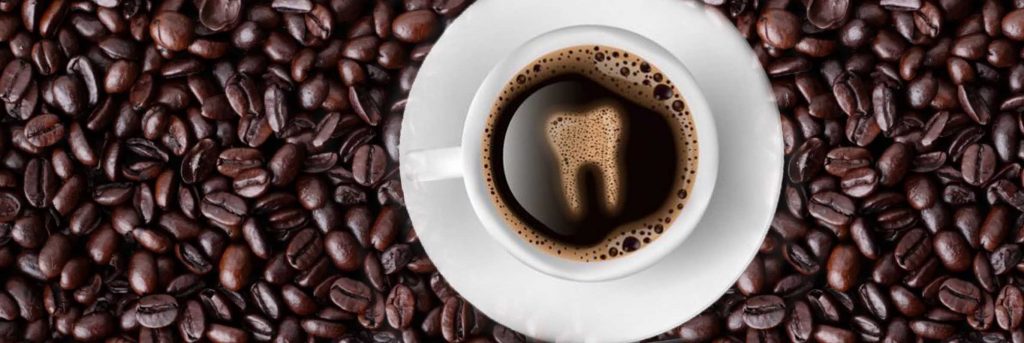
Blog
Can Your Cup of Joe Help Block Caries?
Posted in Company on March 4, 2020
Do you start your day off with a cup of coffee? If so, you’re not alone; on average, Americans consume 400 million cups of coffee per day1, and 2.25 billion cups are drunk daily worldwide2. That’s “mocha” beans!
Caffeine, the most commonly used drug in the world, is a natural stimulant providing health benefits like:
chart source 4
- Improved Energy Levels
- Increases Fiber intake
- May Lower the Risk of Type 2 Diabetes
- Boosts Fat Burning & Metabolic Rate
- May Fight Depression
- May Lower Your Risk of Alzheimer’s Disease
- Lower Your Risk of Dental Caries
So how can your average cup of black coffee help to lower your risk of dental caries? According to a recent study, coffee without additives hinder caries causing bacteria from adhering to your tooth’s surface. Only about 35% of coffee consumers drink it black, while the remaining 65% prefer it sweetened or with some form of cream5.
Roasted coffee shows the highest benefit to dental health. Medium-roasted coffee has the maximum level of antioxidant activity as well as antibacterial activity, even preventing the caries-causing bacteria Streptococcus mutants from clinging to your teeth. When coffee is roasting, compounds such as Melanoidins Polymer will form at high temperatures in food that wouldn’t have developed otherwise. People who regularly drink coffee have less risk of caries because of the antibacterial properties as well as having whiter teeth than those who don’t. But with all those benefits, there are, of course, a few forewarnings.
Coffee provides the most benefits consumed with no additives for the antioxidant and antibacterial properties to be maintained. Milk alone doesn’t impact the antibacterial and antioxidant properties of coffee but, combined with sugar or artificial sweeteners, minimize those properties. By adding sugar or sweetener, you’re impeding the benefits of coffee and increasing the possibility of tooth decay.
The maximum daily intake of caffeine recommended by the Food and Drug Administration (FDA) is 400 mg. In most cases, caffeine is beneficial in moderation but like most things, too much can cause some potentially harmful effects.
Which country drinks the most coffee? Finland is ranked top coffee drinker while the United States is ranked 25th for most coffee consumed6. Colombia is the United States’ largest coffee importer, averaging 1.24 billion bags6.
Are you worried that your coffee consumption will lead to stained teeth? Contrary to what you might think, drinking coffee regularly is actually good for your teeth! While there’s some risk of staining when you have a cup of coffee, it’s similar to having wine and other drinks or food that could also cause staining. The key is proper oral hygiene.
Encourage your patients to rinse with water 30 minutes after their cup of coffee. Utilize an intraoral camera to show your patients any staining that may need more attention or further treatment.
Adding black coffee to your diet won’t guarantee you’ll be cavity-free. Still, it significantly lowers your risk of developing cavities when coupled with good oral hygiene and regular dental checkups. Like everything, coffee should be consumed in moderation, talk with your healthcare provider to see if you are at any risk for implementing black coffee into your diet.
Sources:
- http://www.e-importz.com/coffee-statistics.php
- https://www.statista.com/statistics/292595/global-coffee-consumption/
- https://www.caffeineinformer.com/7-good-reasons-to-drink-coffee
- https://www.healthline.com/nutrition/top-13-evidence-based-health-benefits-of-coffee
- http://www.e-importz.com/coffee-statistics.php
- https://myfriendscoffee.com/usa-coffee-statistics/

Read Next:
Why Proper Amalgam Disposal is Essential
The environment is a topic at the forefront, thanks to the upcoming US Presidential Elections and the recent global phenomenon of Greta Thunberg. No matter what your stance is…


 Contact
Contact